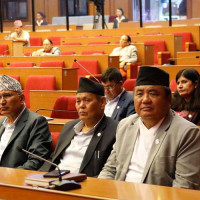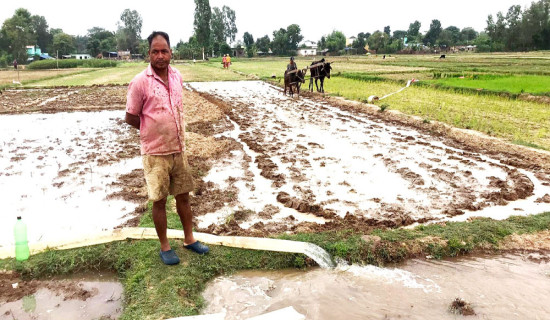- Thursday, 31 July 2025
Ensure Labour Justice
The Nepal government has reiterated its commitment to dignified work abroad to promote an equitable workforce. Analysis of worker experiences reveals the effects of inclusive growth and social protection policies. The government should develop persistent, grassroots-level implementation to translate such commitments into action.
The government prioritised a programme for internal employment. The country's development strategy prioritises job creation, acknowledging that growth without employment is unsustainable. The programmatic priority given to vocational training, strengthening social security provisions, and reforming employment frameworks is expected to boost production and productivity and contribute to the dignity and rights of workers.
Having established legal structures and institutional mechanisms, the labour conditions throughout the nation remain burdened with a lack of employment, informality, and inadequate implementation of existing laws. There is limited access to job opportunities, and many workers are out of the formal economy with no protection or recognition, mainly in rural societies. The pledge to create fair and ethical job opportunities should go beyond the policy statement and be reflected in the real lives of workers. The government is mulling to implementation of a ten-year in-house job advancement programme aimed at public-private partnerships and forward-looking skills.
However, there is room for doubt about its inclusivity and effectiveness. Will it reach marginalised communities? Will investments trickle down to the long-forgotten ones? More importantly, do existing systems stand a chance to execute such broad-ranging reforms? Brushing aside such concerns means allowing the project to benefit the privileged few at the cost of those who need it. The aspiration to transform labour migration from one of need to one by choice with dignity is equally significant. Even though migration has contributed to the economy at the national level, it has traditionally come with undesirable consequences.
Migrant workers have incessantly been subjected to exploitation, a lack of rights, and unsafe working conditions. Efforts towards creating a rights-based system in labour migration must be coordinated with increased international cooperation, legal protection, and mechanisms of return and reintegration support. The proposed social security safety net expansion is another ambitious scheme. It is essential to enrol informal workers and returning migrants into a scheme of contributions. Without initiatives promoting financial literacy, logistical assistance, and information drives, workers would not know about or be able to claim their benefits.
Nepal's adherence to fair supply chains of workers and responsible recruitment is a positive move in the international market. However, strong leadership, transparency, and accountability are required to achieve global labour justice. It necessitates international collaboration and partnership. The times are hard, and criticism should be embraced constructively as part of the process. Real reform requires more than the check-listing at global summits. Audacious leadership, listening to workers' opinions, and taking glaring action against inequalities are essential.
The government must be devoted to making the vision of growth that increases dignity and jobs that give rights a reality. Such programmes can improve the lives of Nepali workers by improving their self-esteem, workworthiness, and job satisfaction. Ensuring the rights and justice of workers will indisputably enhance their efficiency and greatly contribute to the economy of the countries of origin and destinations as well.



-original-thumb.jpg)




-square-thumb.jpg)








